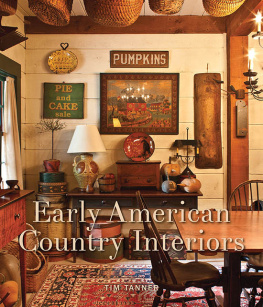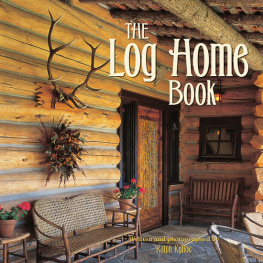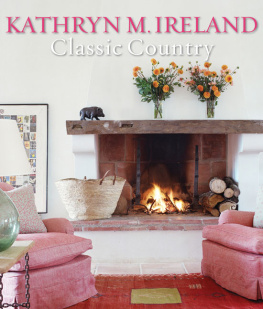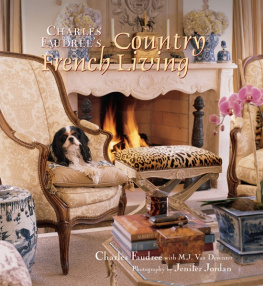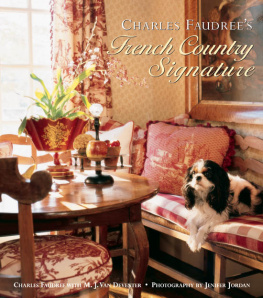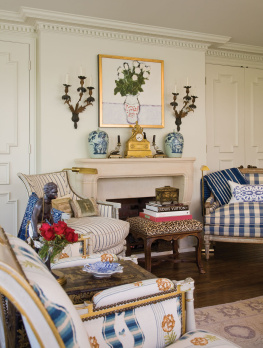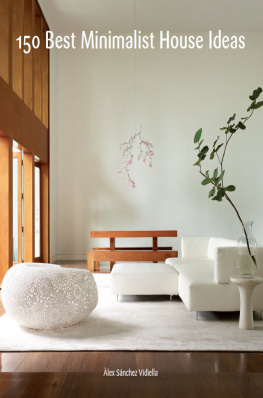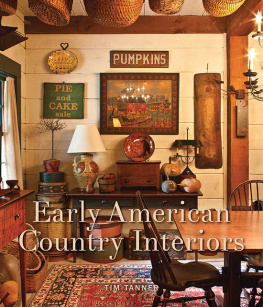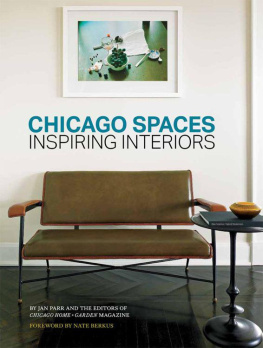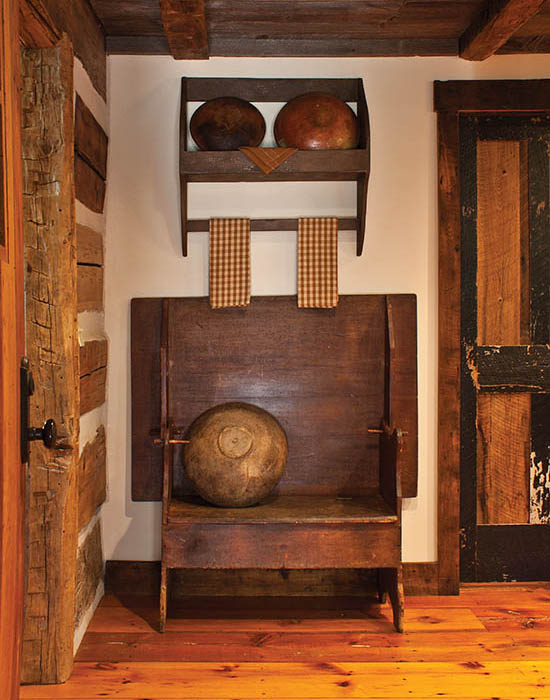Early American Country Interiors
TIM TANNER
Photographs by Tim and Johnna Tanner, and as noted by Brian Brown

Early American Country Interiors
Digital Edition 1.0
Text 2013 Tim Tanner
Photographs 2013 Tim and Johnna Tanner, and as noted 2013 Brian Brown
All rights reserved. No part of this book may be reproduced by any means whatsoever without written permission from the publisher, except brief portions quoted for purpose of review.
Gibbs Smith
P.O. Box 667
Layton, Utah 84041
Orders: 1.800.835.4993
www.gibbs-smith.com
ISBN: 978-1-4236-3277-1
To the Founding Fathers and all the many hands who, under God, forged this great nation of the United States of America. Your works still speak to those who have ears to hear. May we as citizens never forget your sacrifices for us, and never take for granted what you have handed to us. It is you whom I honor in these pages.
Acknowledgements
My sincerest thanks go out to the owners of these incredible homes. I have truly enjoyed seeing their creativity on display, and becoming fast friends with each of them. It is easy to see and feel their love for history and all things old. They are: David T. and Lora Smith (Ohio), Roger and Sylvia Libbey (Maine), Bill and Cheryl Bonin (Massachusetts), Lothar and Anita Janke (Utah), Sara Jense (Utah), Cody and Kari Wright (Utah), Bruce and Bonnie Barker (Utah), Larry and Sandy Neary (Connecticut), Tom and Mary Sayre (Kentucky), Paul and Toni Willmott (Ohio), Ben and Elaine Walden (Kentucky), Noah H. and Lynne Bradley (Virginia), Bill and Marise Craig (Virginia), Ryan and Ali Grubbs (Kentucky), Michael and Kathie OConnor (Virginia), John and Geri Stukel (Idaho), Howard and Marsha Miller (Ohio), Rich and Jean Clinch (Illinois), Dan and Janet Edwards (Michigan), Steve and Devona Porter (Kentucky), Hank and Sally Spaulding (Kentucky), John and Jill Mahan (Kentucky), Dr. William and Amy Lewis (Kentucky), Lee and JoAnne Erdman (Ohio), Mark and Fredda Westfall (Ohio), Bill and Ginny Curry (Ohio), and Pat Linton (Ohio).
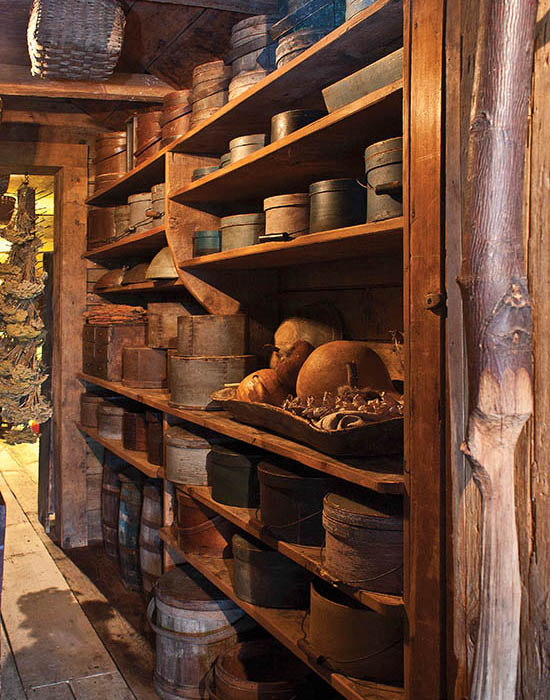
Special recognition goes to my friend Ginny Curry, who is the master of primitive style! And mountains of gratitude are not enough for David T. Smith. I tease David that Im publishing another catalog for himbut the reality is that I so admire his work that just about everything he creates I want to photograph!
Brian Brown is also worthy of my appreciation. He and I took a trip several years ago to photograph some of these homes. I ended up with some of his incredible work and his great friendship.
Publisher Gibbs Smith and editor Bob Cooper cannot be thanked enoughfor this opportunity and their patience with my abilities!
Finally, indescribable thanks goes to my wife, Johnna. Once again she has put up with my extra hours of traveling, photographing, and writing. She has been a tremendous support, taken many of the photographs, and loves this style as much as I do.
Thank you all!Tim Tanner
Foreword
In the fall of 1988 I was sitting in an illustration class at Utah State University. The professor, Glen Edwards, had just finished critiquing our weekly paintings. I dont recall how it went for me but I do remember what happened next. A tall, slender new guy came through the door into our class. He seemed somewhat familiar to me. (I think Tim Tanner seems familiar to most people, even though they dont know him.) He talked with the professor and then dug from a bag some paintings he had brought with him. We as students were anxious to see what the new competition had to offer.
Tims paintings were very different than what we were doing in this particular class. The paintings were portraits of different characters but were highly designed, in fact the design seemed to be the most important part of each piece. Dont get me wrong, the paintings were great, but the design was fantastic.
Over the many years that I have known Tim a lot of things have changed. We have followed each other back and forth across the country as friends, neighbors, and colleagues. We have modeled for each other for our various illustration projects, fished together, hunted together, camped with our families together, and on occasion sorrowed together. Tim and his family are as familiar to me and mine as, well, family.
I have watched with curiosity, and I have to admit with some envy, how Tim has always designed not only his paintings and other artistic endeavors but the spaces around him to look and feel the way he sees the world, with the simplistic beauty of days gone by. He designs every facet of his surroundings, whether it is the way he is dressed or his latest building project. It could be a simple chicken coop or the renovation on a potentially great old house, but he sees things differently than most of us do, and he makes sure that the design remains fantastic.
In Tims world everything is placed in the right place. He follows intuitively the rules and principles that are important to design and composition. Proper symmetry is achieved here and there, correct spacing of the elements involved, the shape and lines seem to effortlessly fall into place, the colors of each object are complementary to their surroundings or create the focal point that he wants to achieve, the paint has to be applied in a specific way to accomplish the right feel, and on and on. Just writing this makes my head spin with options. I often refer to Tim as a Renaissance man. He can do a lot of thingshes a designer, painter, musician, builder, historian, maker of many things interestingbut probably at the top of his list would be husband and father.
I look forward to seeing what Tim is up to next. Whatever it is Im sure it will be beautifully designed and very pleasing to the eye. He will give us another glimpse into his world, and Im sure it will cause me to think that I should be more conscientious of design not only in my world but also in my next painting.
Dan Burr
Tetonia, Idaho
March 24, 2013
Introduction
Have you ever walked into a retail shop and heard music playing? Its an occurrence that most of us are very familiar with. Imagine spending an entire day shopping, and every store you go into is playing the same song. In each shop you enter, the same notes are heard. At the start of the day the song is new and refreshinga cheerful bit of music, pleasant to the ears. But as your shopping day progresses it becomes increasingly tiring. Thankfully there are a few slight variations. In some shops the chorus is playing; in others a verse. At times the arrangement is slightly slower, in other locations its more upbeat. Some shops even have an arrangement with more or less instruments. But regardless of the arrangements, it is nevertheless the same song. By the time you are done shopping youre to the point that if you heard it once again on the final day of your life, that would be one day too soon. That catchy, upbeat tune that sounded so energizing first thing in the morning now pounds on your brain and makes you want to scream.
This is similar to the way we respond to the latest, greatest styles in todays technologically advanced society, where we are all eager to follow the current crazes. They might be the latest fashion trends, the most politically correct health diet, or the most popular reality TV show.

